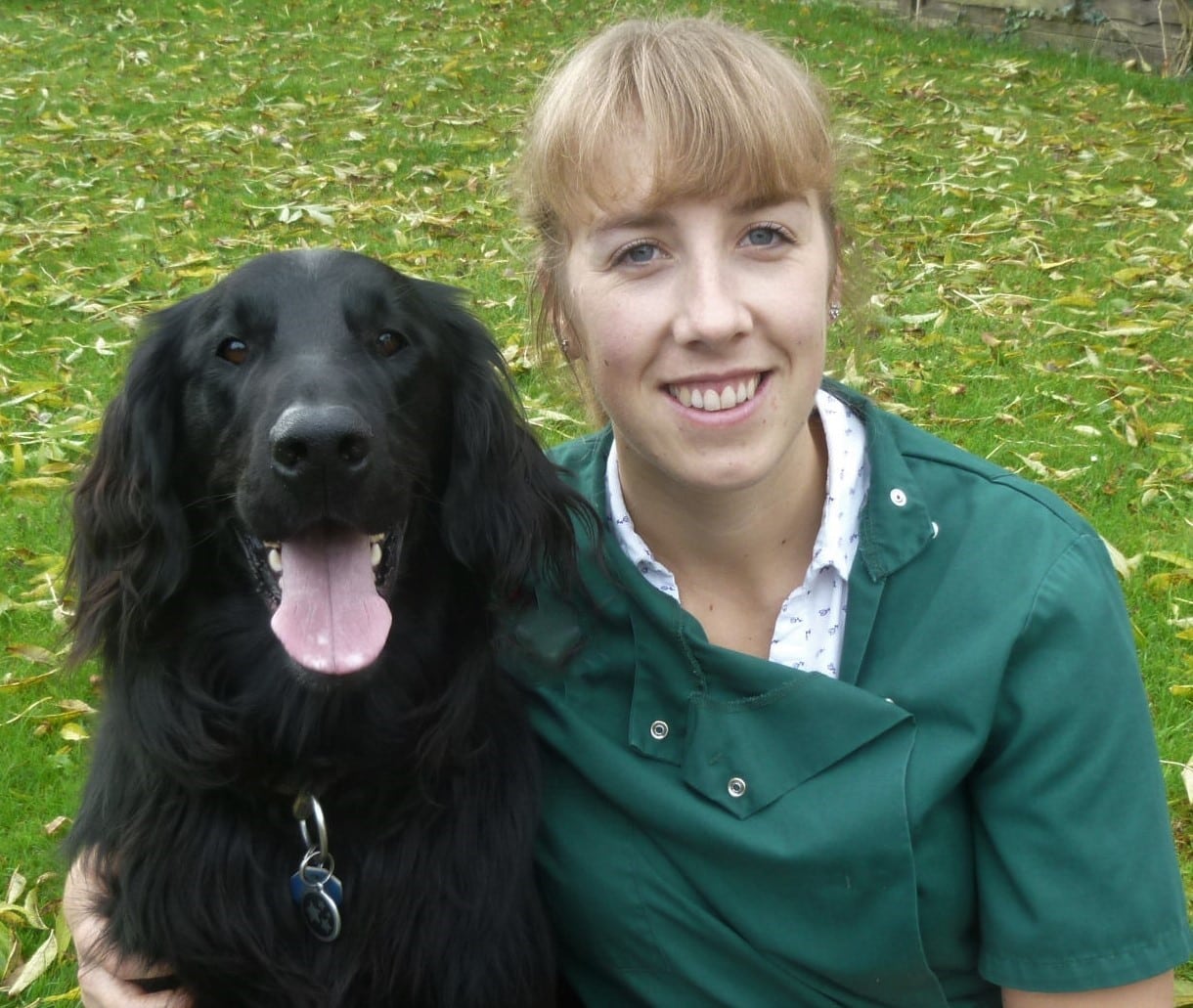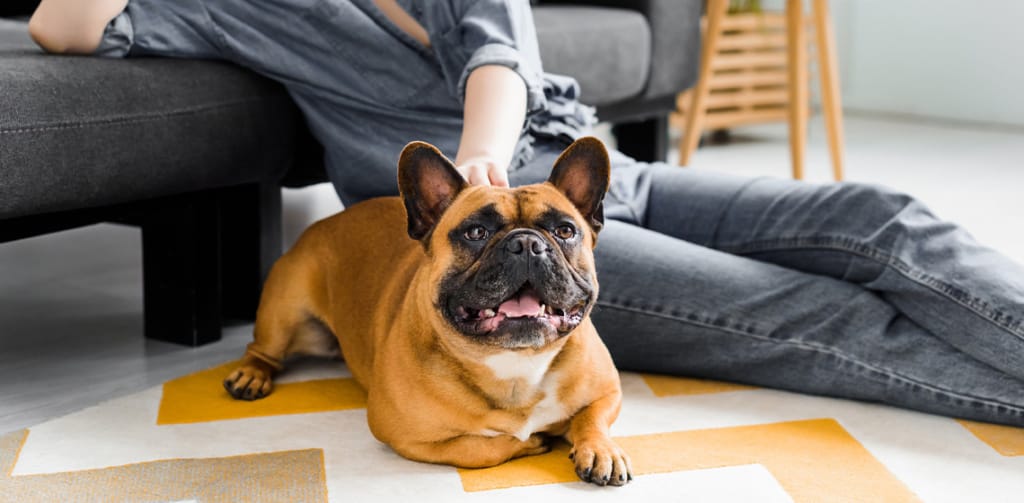As a dog parent, you are probably used to clearing up after your pet but what happens if you see mucus in dog poop? In this article, we will explore the possible causes of this and what you can do to help your dog.
Severity:
Mild to severe depending on the symptoms.
Table of Contents
Key points
- Small amounts of mucus may be seen from time to time in healthy dogs
- Large amounts of mucus indicate colitis, which can be caused by a number of underlying issues
- Treatment varies depending on the cause of your dog’s issues
- See your veterinarian if your dog seems unwell, especially with symptoms like vomiting, lethargy, or abdominal pain
Common in
Dogs of any age group.
Symptoms & types
Normal poop contains a small amount of mucus, which is a slimy substance that helps lubricate the feces as it passes through the digestive tract. Usually, this isn’t particularly noticeable. However, if your dog is suffering from digestive upset you may see increased amounts of mucus, possibly alongside other symptoms such as soft or loose stools, blood in the feces, vomiting, and abdominal discomfort.
Mucus in dog poop is normal in low levels to help lubricate it along the digestive tract.
If you see small amounts of mucus occasionally in your dog’s poop this is nothing to worry about. However large amounts of mucus that appear as jelly or skin-like coating over the stools, or that pools around the feces, is more concerning. This usually occurs due to inflammation occurring in the colon, known as colitis. There are many different causes of colitis, which we will go on to explore in more detail.
Understanding the diagnostics
If your dog has issues with his stools, then our veterinarians will start by examining them and discussing things like their diet and parasite treatment history. They may suggest some further tests if they have any concerns, or if the symptoms have been going on for a while. This could include fecal samples to screen for parasites and bacterial infections. Blood samples are sometimes recommended to screen for underlying health conditions. Diagnostic imaging like x-rays and ultrasound scans can be useful to screen for cancer issues.
You must see a veterinarian if you are worried about your dog, or if the mucus in their stools doesn’t resolve after a day or two.
Learning about the causes
There are a variety of underlying issues that could cause mucus in poop. Here are some of the more commonly diagnosed causes –
Parasites
Infections with parasites can cause mucus in your dog’s stools. Common intestinal worms include roundworm and tapeworm. Microscopic protozoa called giardia can also cause loose stools, sometimes with blood and mucus. Routine preventative worming treatments can help keep your pet healthy.
Dietary indiscretion
Dogs that eat things they shouldn’t do are at risk of tummy troubles. Scavenging while out walking and eating things like manure, discarded food, and other trash could cause colitis and lead to mucus in your dog’s poop. Eating things outside of his normal diet like table scraps could also trigger an issue.
Infections
Bacterial infections could cause problems with your dog’s poop. Salmonella and campylobacter are examples of this, with dogs that eat raw meat diets being at higher risk of encountering bacteria.
Inflammatory bowel disease
Dogs with this condition can show different levels of severity; some animals suffer from symptoms more than others. Hypoallergenic diets are the treatment of choice for many dogs but some could require medication.
Stress
Certain dogs are susceptible to stress-induced colitis. Stress is thought to affect the gut’s normal motility in these animals, leading to soft poop and mucus. This could happen when your dog stays at a boarding kennel, moves house, or when a new family member joins the household (e.g., a new pet or a baby).
Cancer
Certain types of cancer could cause loose stools and mucus. Blood can be seen sometimes too. A cancer diagnosis will be made with a combination of blood tests, diagnostic imaging, and biopsies.
If your pet is bright and happy and not showing any other signs of ill health then you could try feeding some bland food for a couple of days.
Best treatment options
The treatment will depend on the underlying cause of your dog’s colitis. Anti-parasite products will be recommended for worm or giardia infections, antibiotics could be required for animals with bacterial infections, and a change in diet may be advised for animals with suspected inflammatory bowel disease. If your dog has simply overindulged or eaten something they shouldn’t have done, then a few days of bland food or some probiotics may be all that’s needed.
Home remedies & their effectiveness
If your dog has had a one-off episode of loose stools, with mucus present, then you could try treating him at home. If your pet is bright and happy and not showing any other signs of ill health then you could try feeding some bland food for a couple of days. Food that is easy to digest such as cooked chicken breast or white fish, with boiled rice, is ideal. Alternatively, you could try a commercial sensitive-stomach food over the counter from your veterinarian or a pet store.
Probiotics can be helpful to try too. Thefse will help to improve your dog’s gut flora and provide his digestive tract with plenty of good bacteria. The kaolin and montmorillonite present in many of these products can also help to firm your dog’s stools up. Probiotics don’t require a prescription, so again can be purchased over the counter or online.
When to see a vet
You must see a veterinarian if you are worried about your dog, or if the mucus in their stools doesn’t resolve after a day or two. It’s also important that your pet is seen straight away if they have any of the following symptoms –
- Vomiting
- Large amounts of very watery stools
- Blood in the stools (either fresh red blood or dark black digested blood)
- Abdominal pain
- Lethargy
- Collapse
FAQ
Mucus in dog poop is normal in low levels to help lubricate it along the digestive tract. If you are seeing a lot of mucus it could indicate colitis (inflammation of the colon), which can be caused by multiple underlying issues including parasites, dietary changes, inflammatory bowel disease, and stress.
Normal small amounts of mucus in dog poop are clear and not that visible. When present in larger quantities it can be a white or pale yellow color, almost looking like skin over the stools. Sometimes it could be red or pink-tinged if blood is present.

Rebecca is a companion animal vet who has always had a passion for writing and client communication. Since her graduation from the Royal Veterinary college in 2009, she has gained a wealth of experience in first opinion small animal practice, in both clinical and managerial roles. She currently works in the South West and deals with a variety of routine and emergency appointments, but particularly enjoys medicine cases. Outside of work and writing, she enjoys spending time with her family, including her bouncy flat-coated retriever George!








